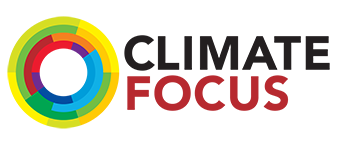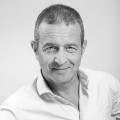World Bank Pilot Auction Facility: Exploring opportunities for going beyond the pilot phase
World Bank Pilot Auction Facility: Exploring opportunities for going beyond the pilot phase

Picture: Pilot Auction Facility
Climate Focus and its partners have been appointed by the World Bank to provide consulting services for its Pilot Auction Facility (PAF) for Climate Change Mitigation. The assessment of the PAF will investigate in which contexts (e.g. sectors, jurisdictions and governance, type of financial product) the use of the instrument could be expanded for efficient delivery of climate finance. The consultancy consortium is honoured to accompany the World Bank in this crucial phase of exploration, idea generation and refinement, which will result in the identification of a number of selected blueprints ready to be implemented in the short term.
To reach this objective, three studies will be undertaken under this assignment:
- Study 1 will assess the potential for scaling up the PAF by further exploring the potential for mitigation in the methane sector. The study will present a number of specific auction designs tailored to particular project categories, geographies or project development phases. These ‘blueprints’ will serve to guide the World Bank in the future evolution of the PAF mechanism and shed light on the potential to further support mitigation action in the methane sector.
- Study 2 will build on the general approach defined in Study 1 but will expand into other sectors, offering recommendations on how the PAF model can be replicated across other mitigation sectors.
- Study 3 will define a methodological approach to assess the effectiveness of the PAF.
The consortium with its complementary skills and expertise will be led by Climate Focus, which is also managing the overall project. The other members of the team are Ecofys, Power Auctions, and Carnegie Consult.
Context
Without extra incentives, investment in developing countries will likely be in conventional polluting technologies. Developing countries therefore need additional funding and help in leveraging their initiatives within the next years to invest in a sustainable infrastructure. While developed countries have pledged to scale up their climate finance contributions to $100 billion annually by 2020, public finance is a limited resource and small in comparison to the magnitude of investment needs. In order to realize investments at scale, private sector finance has to be leveraged to the largest possible extent.
The PAF is an innovative model that seeks to enable private sector investments in emission reduction projects in a cost-efficient way. It builds on the infrastructure of the Clean Development Mechanism (CDM) and takes advantage of the readily available low cost emission reduction opportunities in its pipeline. Via a competitive auction the PAF rewards the lowest bidders with a minimum price guarantee for their Certified Emission Reductions (CERs) in the form of tradable put options. Project developers have the flexibility to exercise the option, trade it, or sell their CERs on the market in case the market price rises above the guaranteed price by the PAF. With its $100 million funding target the PAF has a pilot character and seeks to provide lessons learned for future climate finance flows including future tranches of the facility. A first auctioning round was held in July 2015 for methane-reducing CDM projects at landfills, agriculture and wastewater sites, resulting in the purchase of 8.7 million CERs for $2.40 each via tradable put options. Subsequent rounds shall upscale the reach of the auction facility, possibly including other sectors based on a criteria assessment and increased funding to substantially extend the reach of the instrument.
The lifespan of the project is five months, running from January to May 2016.








